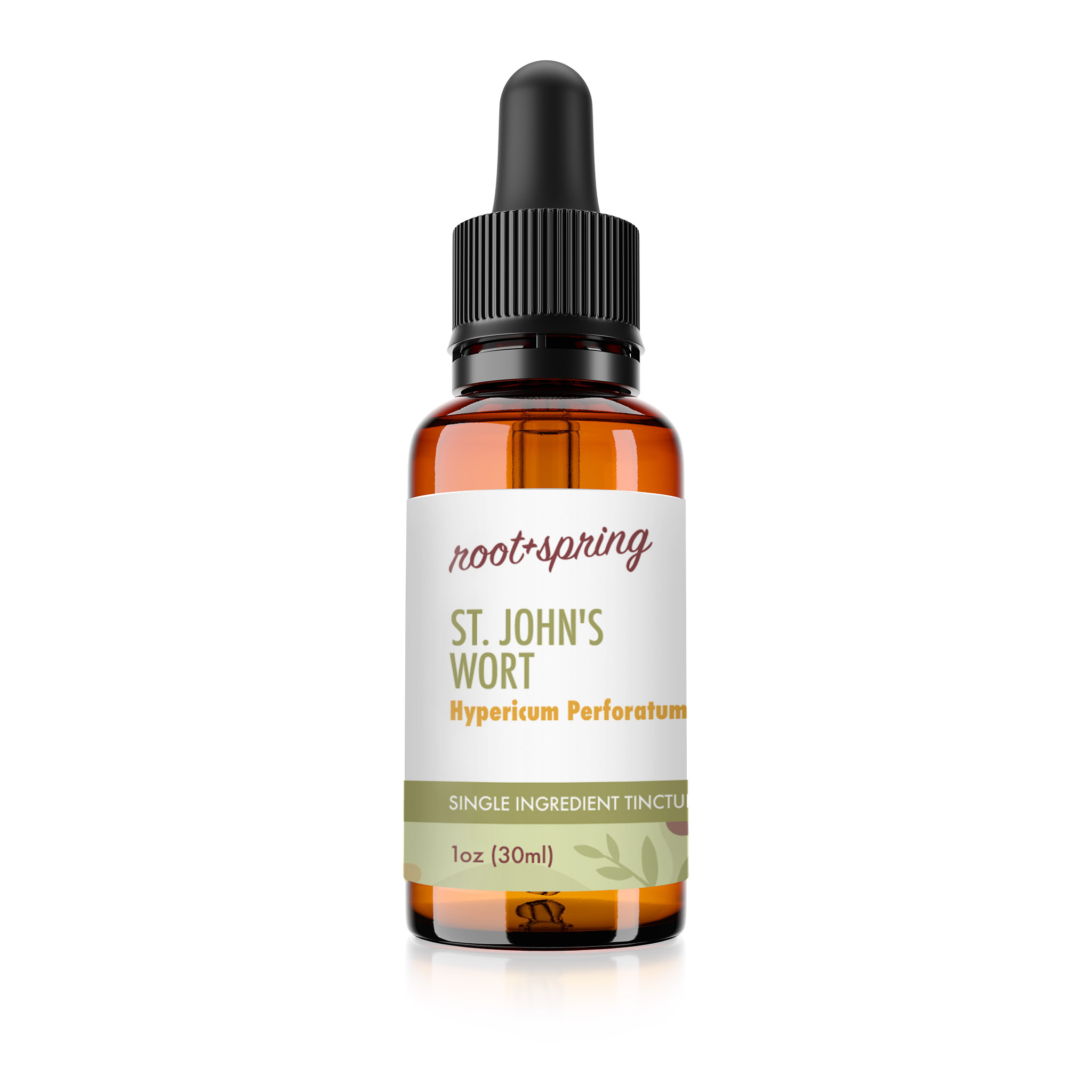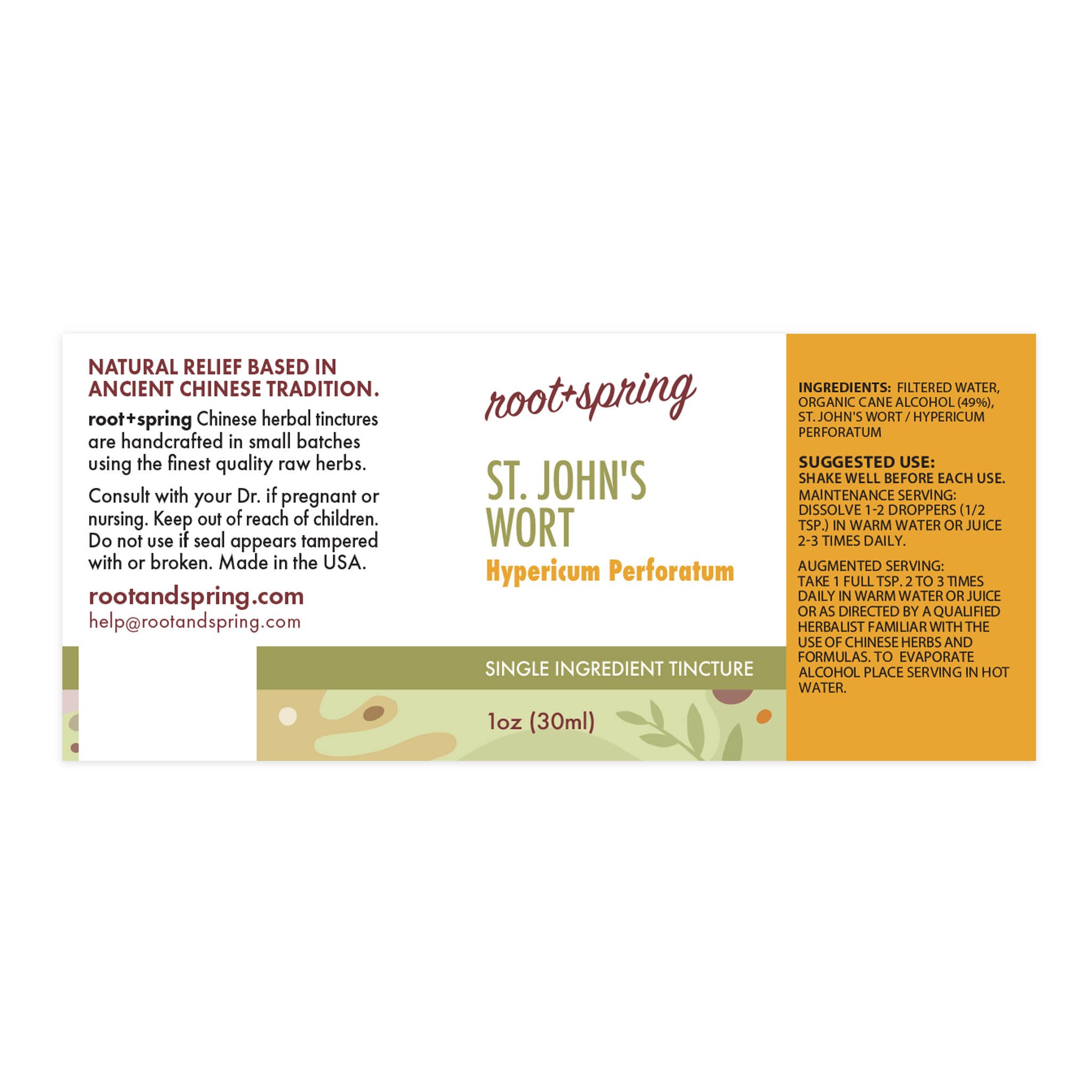St. John’s Wort Liquid Extract:
St. John’s Wort (Hypericum perforatum) has a long tradition of use as a medicine dating back to ancient Greece, where it was used for a range of illnesses, including various nervous disorders. St. John’s wort also has antibacterial, antioxidant, and antiviral properties. Because of its anti-inflammatory properties, it has been applied to the skin to help heal wounds and burns.
In modern times, it is best known for addressing symptoms of mild-to-moderate depression– studies indicate that it seems to work as well as selective serotonin reuptake inhibitors (such as fluoxetine (Prozac), citalopram (Celexa), and sertraline (Zoloft). In addition, St. John’s wort doesn’t seem to cause loss of sex drive, one of the most common side effects of antidepressants. It can also help improve mood for people with Seasonal Affective Disorder…
…however, one should NOT use St John’s Wort to try and treat severe depression — the kind where you have trouble functioning day to day, or have thoughts of harming yourself or others. Always see a doctor if your depression is making it hard for you to function. In addition, it should not be used with bipolar disorders (as it can increase the risk of manic episodes).
Other potential uses for St John’s Wort include:
- Premenstrual syndrome (PMS). Research suggests that St. John’s wort may help relieve physical and emotional symptoms of PMS in some women, including cramps, irritability, food cravings, and breast tenderness. One study reported a 50% reduction in symptom severity.
- Menopause. There’s some evidence to suggest that St. John’s wort, combined with black cohosh, helps improve mood and anxiety during menopause.
- Seasonal affective disorder (SAD). Used alone, St. John’s wort has improved mood in people with SAD, and research shows that using St. John’s wort together with phototherapy works even better.
- Eczema, wounds, minor burns, hemorrhoids. St. John’s wort has antibacterial properties and may also help fight inflammation. Applied topically (to the skin), it may relieve symptoms associated with minor wounds and skin irritation.
Note also that St. John’s Wort can interact with a variety of different pharmaceutical drugs. For example, it can interact with medications used during surgery, so you should stop taking it at least 5 days or more before surgery. Make sure your doctor and surgeon know you are taking St. John’s wort. St John’s Wort can also reduce the effectiveness of drugs that suppress the immune system (such as Adalimumab (Humira) and Azathioprine (Imuran)) and reduce the effectiveness of warfarin, an anticoagulant (blood thinner). There are other potential herb-drug interactions at play with St. John’s Wort (in addition to those 3 mentioned above), so make sure to educate yourself fully if you plan to make St. John’s Wort a part of your supplementation regiment.
MADE IN USA
Shake Well before each use.
Maintenance Serving: Dissolve 1-2 droppers (1/2 tsp.) in warm water or juice 2-3 times daily.
Augmented Serving: Take 1 full tsp. 2 to 3 times daily in warm water or juice or as directed by a qualified herbalist familiar with the use of Chinese herbs and formulas.
To evaporate alcohol place in hot water.
Amount: varies: 1 oz. = approximately 10 days supply at bottle dosage.



